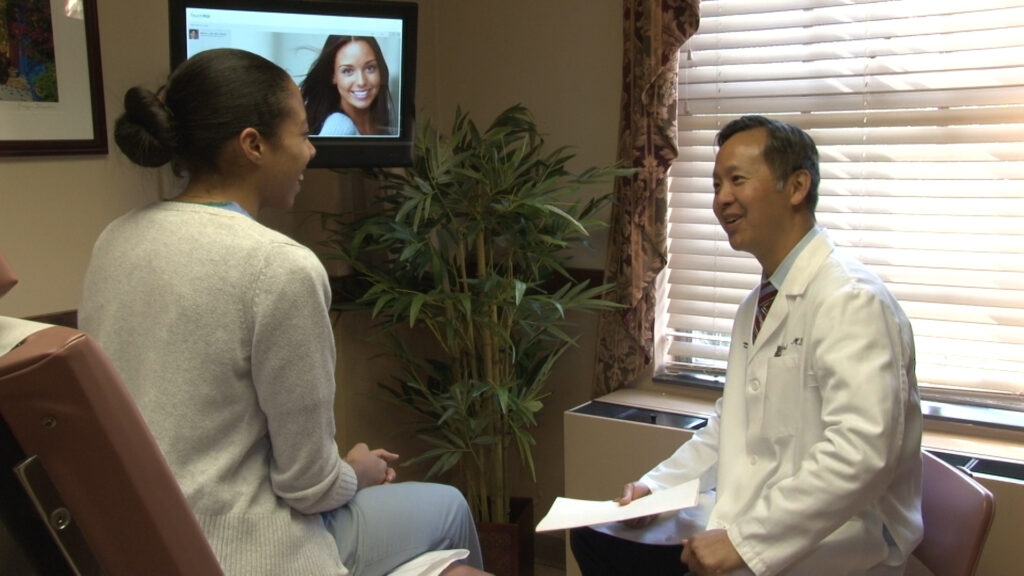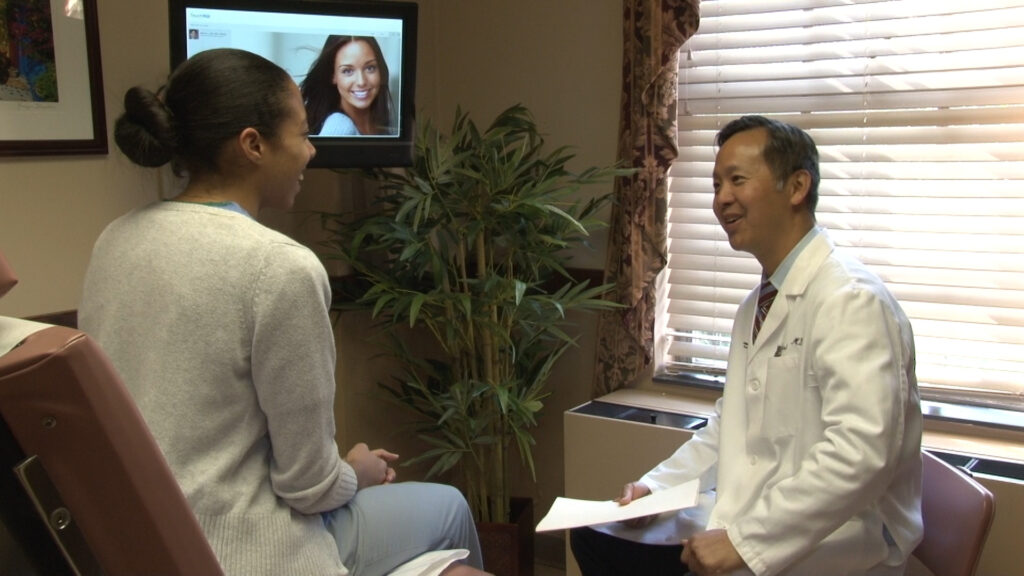Credentials and experience are important when entrusting someone with your appearance.
The difference between exceptional and adequate results often lies not in the procedure itself but in who performs it. Board certification represents just the baseline. Experience in your specific procedure creates refinement. And safety records protect your wellbeing.
While friends may make recommendations based on bedside manner alone, your evaluation must encompass surgical skill, aesthetic judgment, facility standards, and recovery support systems. Five minutes scrolling through dramatic before-and-after photos is important but verification of qualifications and safety protocols is also vital in choosing your plastic surgeon.
As you start your plastic surgery journey, here is some information on how to choose a plastic surgeon that’s right for you.
Related: Will Plastic Surgery Last Forever?
Understanding the Importance of Picking the Right Plastic Surgeon

The Relationship Between Surgeon Selection and Outcome Satisfaction
Patients who invest time in researching different plastic surgeons are happier with their results and overall experience.
Selecting the right plastic surgeon influences not only the aesthetic outcome but also your safety during the procedure, the quality of your surgical experience, and the overall result.
When learning how to choose a plastic surgeon, know that this professional will guide you through a life-changing experience. The technical skill set, artistic vision, and ethical framework of your chosen plastic surgeon will impact your physical appearance and emotional well-being for years following your procedure.
Long-term Implications of Your Selection Process
The consequences of your selection extend far beyond the immediate postoperative period.
A well-performed procedure enhances your appearance subtly and naturally as you continue to age. Less than optimal results may require revision surgeries, which typically present greater technical challenges.
Proper pre-operative assessment, surgical technique, and post-operative care minimize scarring and other complications that have permanent implications.
Finding the right plastic surgeon will give you natural-appearing and long-lasting results that harmonize with your overall appearance.
Differences Between Cosmetic Providers and Specialized Plastic Surgeons
A fundamental distinction exists between plastic surgeons and other providers who perform cosmetic procedures. This difference forms the cornerstone of your selection process.
A board-certified plastic surgeon has completed medical school, a minimum five-year residency program in plastic surgery, and has demonstrated expertise through rigorous examination processes from the American Board of Medical Specialties. Only those surgeons that have completed this training and certification can call themselves a plastic surgeon.
By contrast, some doctors may have completed courses in specific techniques without comprehensive surgical training. Often they will call themselves cosmetic surgeons as they do not have board certification in plastic surgery. Cosmetic surgery is not a medical specialty that is recognized by the American Board of Medical Specialities.
Some providers, including dermatologists, otolaryngologists, or general surgeons, may have excellent training in their respective fields but lack the specialized plastic surgery training that addresses the aesthetic and functional aspects of cosmetic procedures in a comprehensive manner.
Essential Qualifications to Verify
Board Certification Requirements and Verification

Board certification represents the gold standard in determining a plastic surgeon’s qualification level.
The American Board of Plastic Surgery (ABPS) certification specifically indicates that a plastic surgeon has completed accredited training and passed comprehensive examinations testing their knowledge and skill. This certification must be renewed every ten years, ensuring continued competence.
To verify board certification, it’s important to check the American Board of Medical Specialties (ABMS) website rather than relying solely on a plastic surgeon’s marketing materials.
Be aware that some providers advertise certification from boards that lack recognition from the ABMS and do not uphold the same rigorous standards. This verification step represents the most fundamental aspect of how to choose a plastic surgeon who will provide safe, high-quality care.
Educational Background and Residency Training
The foundation of a plastic surgeon’s expertise lies in their educational journey. When selecting a plastic surgeon, review where they completed medical school, residency training, and any fellowship specialization. Prestigious institutions typically provide more comprehensive training and exposure to complex cases, though excellent training can be found in many programs.
Plastic surgery residency programs require a minimum of five years of surgical training after medical school.
Some plastic surgeons pursue additional fellowship training in subspecialties such as craniofacial, microsurgery, or aesthetic surgery. This information helps you assess whether their training aligns with your specific surgical procedure needs and should be readily available on their professional website or through direct inquiry.
Hospital Privileges and Why They Matter
Hospital privileges provide an additional layer of credential verification often overlooked by patients.
Even if your procedure will be performed in an office-based surgical suite, confirm that your plastic surgeon maintains privileges to perform the same procedure at an accredited hospital.
Hospitals conduct thorough background checks and ongoing performance reviews before granting and maintaining these privileges.
A plastic surgeon who lacks hospital privileges for the procedure you seek may not meet the established standards of the medical community for that particular operation. This verification step provides independent confirmation of your plastic surgeon’s qualifications.
Related: What to Know Before Getting Breast Revision Surgery
Evaluating Experience and Specialization
Case Volume and Procedure Specialization

The frequency with which a plastic surgeon performs your specific procedure significantly impacts their proficiency and expertise.
Surgical skill develops through repetition and refinement over hundreds of cases. Inquire about the number of times they have performed of your desired procedure within the past year and throughout their career.
While many plastic surgeons offer a wide range of procedures, most develop particular expertise in specific areas of aesthetic or reconstructive surgery.
A plastic surgeon who performs breast augmentation weekly will likely possess greater skill in that procedure than one who performs it monthly. This specialization often results in more refined techniques, better management of potential complications, and more consistent outcomes.
Years of Practice in Specific Procedures
The evolution of plastic surgery techniques creates an important consideration regarding experience. Longevity in practice provides valuable perspective, but continued education and adaptation to improved techniques matter equally.
The ideal plastic surgeon combines significant experience with a commitment to incorporating evidence-based innovations that enhance safety and results.
For procedures involving newer techniques, a balance between experience with innovation or current hot trends is important. A plastic surgeon who has performed traditional techniques for decades but has limited experience with contemporary approaches may not provide optimal results. Conversely, those adopting every new trend without established safety data may expose patients to unnecessary risks.
Dr. Adrian Lo has been in practice over 30 years and his techniques for face and body contouring have constantly evolved over the years incorporating innovations in surgical techniques and patient safety.
Teaching and Publication Credentials
Plastic surgeons who teach other surgeons or publish in peer-reviewed journals often demonstrate exceptional knowledge and skill in their field. These activities require remaining current with scientific literature and maintaining superior technical abilities that withstand colleague scrutiny.
Faculty appointments at medical schools, presentations at major plastic surgery conferences, and publications in respected journals indicate that a plastic surgeon has contributed to advancing their field.
While not essential, these credentials suggest a level of expertise that extends beyond basic qualifications and reflects recognition by professional peers. For example, a review of Dr. Lo’s curriculum vitae shows substantial appointments and teaching at medical institutions and a significant volume of published articles.
Assessing Previous Patient Results
Interpreting Plastic Surgeon Before and After Photographs
Before and after photographs provide evidence of a plastic surgeon’s aesthetic sense and technical expertise. When reviewing these images, look for patients with similar body types or facial features to your own. Also, look for consistency across multiple patients rather than a single impressive result.
Note the lighting, positioning, and timeframe represented in these photographs. Reputable plastic surgeons present standardized images taken at appropriate postoperative intervals without misleading enhancements.
The results should appear natural and harmonious with each patient’s overall appearance rather than creating an operated or artificial appearance.
Take a look at some of our before-and-after photos to see if these are the types of transformations you’re looking for!
Understanding Realistic Outcomes
A qualified plastic surgeon discusses potential outcomes honestly, including limitations based on your anatomy, skin quality, and other factors. They should present a range of possible results rather than promising perfection or making guarantees that cannot be fulfilled.
This realistic approach extends to addressing potential complications and recovery experiences. Transparent communication about what the procedure can and cannot accomplish indicates professional integrity that serves your interests.
Reviewing Patient Testimonials Effectively
While testimonials provide insight into the patient experience, approach them with appropriate perspective. Focus on comments regarding the overall experience, including pre-operative education, staff interactions, availability during recovery, and long-term satisfaction rather than immediate results alone.
The most valuable testimonials often describe the entire process from consultation through post-operative care. Reviews that mention how the plastic surgeon managed unexpected situations or complications can be particularly revealing of their professional character and commitment to patient welfare beyond ideal cases.
You can take a look at our written and video testimonials to get a sense of the transformations we’ve provided!
Related: Is Small Breast Augmentation Right For You? A Natural Approach
The Consultation Process as an Evaluation Tool
Plastic Surgeon Consultation Questions

The consultation provides your opportunity to assess the plastic surgeon’s knowledge, communication style, and approach to patient care.
Prepare specific questions about their experience with your procedure, their recommended technique, expected recovery process, and potential complications.
Inquire about their aesthetic philosophy and how they would customize the procedure to your specific anatomy and goals. The plastic surgeon should respond with thoughtful consideration of your unique circumstances rather than a standardized approach.
Red Flags to Watch For During Consultation
Several warning signs during consultation warrant serious consideration. These include pressure to decide quickly, dismissive responses to your questions, guarantees of perfect results, or suggestions to undergo more extensive procedures than you initially sought without clear justification.
Be cautious if the plastic surgeon cannot clearly explain why they recommend a particular approach or if they appear unfamiliar with alternative techniques.
Similarly, reluctance to discuss complications or recovery limitations suggests potential concerns about transparency that may affect your overall care experience.
Communication Style and Personal Comfort Assessment
The subjective element of personal connection significantly impacts your experience. The plastic surgeon who will serve you best combines technical expertise with communication skills that help you feel heard and respected. Trust and rapport are essential components for a successful patient-plastic surgeon relationship.
Notice whether the plastic surgeon listens attentively to your concerns or dominates the conversation. Their ability to explain complex concepts in understandable terms, demonstrate empathy for your anxieties, and make you feel comfortable asking questions creates the foundation for a successful surgical experience beyond the technical aspects of the procedure.
Facility Standards and Safety Protocols
Accreditation of Surgical Facilities
If your procedure will occur in an office-based surgical facility rather than a hospital, verify that it holds accreditation from organizations such as the American Association for Accreditation of Ambulatory Surgery Facilities (AAAASF), Accreditation Association for Ambulatory Health Care (AAAHC), or Joint Commission.
Accreditation includes evaluation of equipment, emergency protocols, staff qualifications, and facility cleanliness. This independent assessment provides assurance that the surgical environment maintains standards comparable to hospital settings.
Emergency Preparedness and Safety Records
Inquire about emergency protocols and the facility’s record of managing unexpected situations. A properly prepared surgical facility maintains emergency equipment, medications, and transfer agreements with local hospitals. The staff should receive regular training in emergency response procedures.
The plastic surgeon should discuss these safety measures openly and provide information about their personal record regarding complications and emergency transfers.
Anesthesia Protocols and Professional Standards
Anesthesia administration represents a critical safety component in plastic surgery.
Determine whether a board-certified anesthesiologist or certified registered nurse anesthetist will administer your anesthesia and monitor your vital signs throughout the procedure.
The type of anesthesia recommended should align with current safety standards for your specific procedure. The plastic surgeon and anesthesia provider should evaluate your medical history thoroughly and adjust the anesthesia plan accordingly to minimize risks based on your individual health profile.
Building a Professional Relationship
The Importance of Trust and Mutual Respect
Mutual respect forms the foundation of the patient-plastic surgeon relationship, with the plastic surgeon acknowledging your goals while providing honest professional guidance.
Trust develops when a plastic surgeon listens attentively, answers questions directly, understands your goals, and demonstrates consistent integrity throughout your interactions. This trust proves particularly valuable if complications arise or results develop differently than anticipated, situations that test the strength of the patient-plastic surgeon relationship.
Ongoing Communication Expectations
Establish clear expectations regarding communication channels, response times for questions, and access to your plastic surgeon versus staff members. Understand who will see you at follow-up appointments and how concerns between scheduled visits will be addressed.
The plastic surgeon’s accessibility during your recovery significantly affects your experience and potentially your results. Those who provide direct contact information for urgent concerns typically demonstrate greater commitment to patient welfare than those who delegate all post-operative communication to staff members.
Long-term Care and Revision Policies
Discuss the plastic surgeon’s approach to long-term results and their policies regarding revisions if needed. While no plastic surgeon can guarantee perfect results, those with integrity establish clear policies regarding additional costs and timing considerations if revision becomes necessary.
Some plastic surgeons offer regularly scheduled long-term follow-up appointments to monitor results. This ongoing relationship provides continuity of care and early identification of any concerns requiring attention.
Schedule Your Consultation With Dr. Adrian Lo: Your First Step Toward Informed Selection
Armed with this comprehensive framework for how to choose a plastic surgeon, you are prepared to begin your evaluation process with confidence. Dr. Adrian Lo welcomes your questions regarding his qualifications, experience, and approach to patient care.
Take this important first step in your aesthetic journey by scheduling your consultation with Dr. Lo today. This initial meeting provides the information you need to make an educated decision about entrusting your care to a qualified plastic surgeon whose approach aligns with your specific needs and values!
